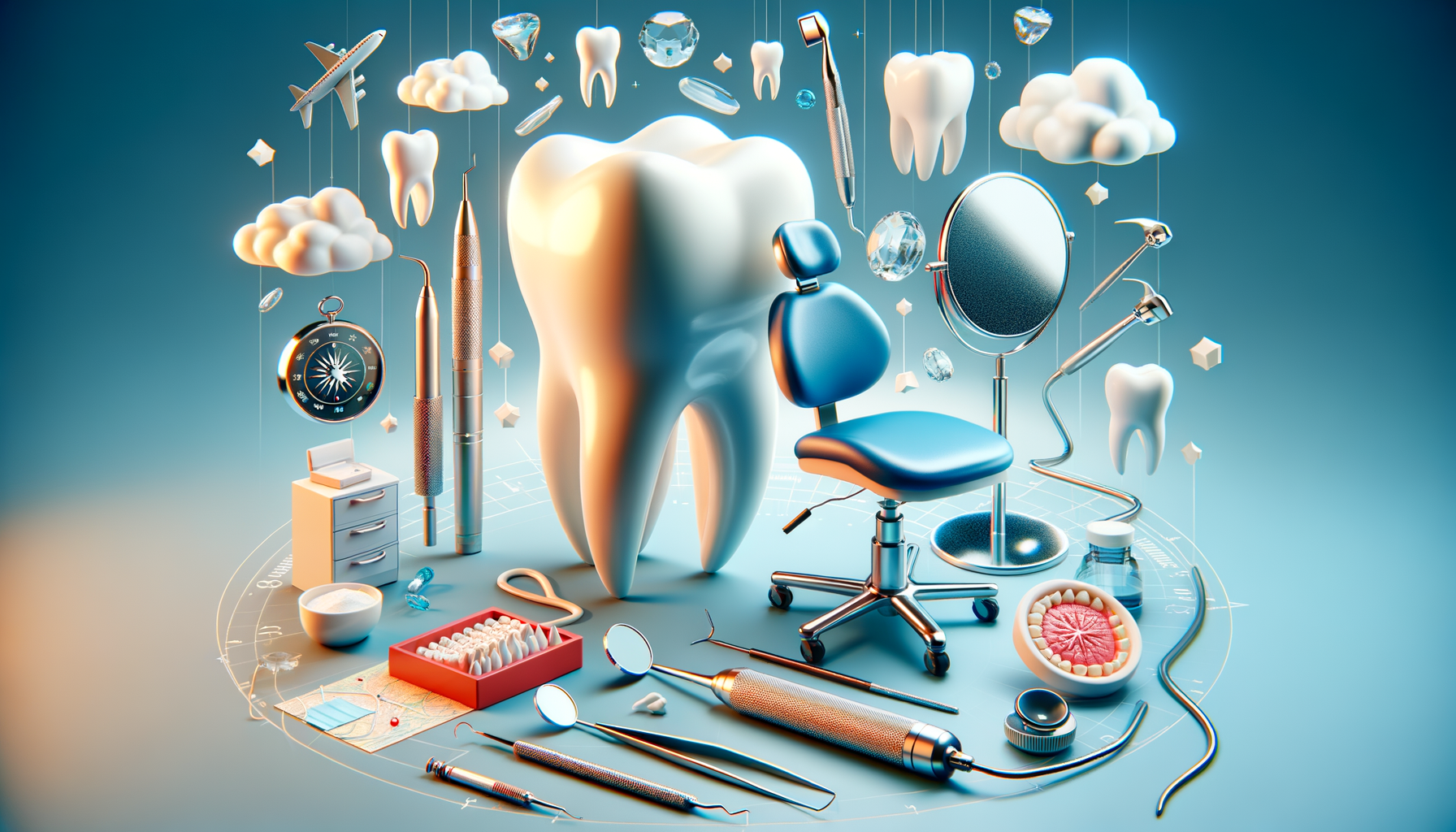The Importance of Dental Health
Dental health is a crucial component of overall well-being, impacting not only your mouth but also your entire body. Good oral hygiene practices help prevent cavities, gum disease, and other dental problems that can lead to more serious health issues if left untreated. Regular dental check-ups and cleanings are vital in maintaining oral health, as they allow dentists to detect early signs of problems and provide timely interventions. Moreover, healthy teeth and gums contribute to a confident smile, enhancing social interactions and self-esteem.
Maintaining dental health involves a combination of daily practices and professional care. Brushing twice a day, flossing daily, and using mouthwash can significantly reduce the risk of oral diseases. Additionally, a balanced diet that limits sugary foods and beverages supports healthier teeth. Visiting a dentist regularly ensures that any potential issues are addressed early, preventing complications that could affect your overall health.
Research has shown that oral health is linked to various systemic conditions, including heart disease and diabetes. Bacteria from the mouth can enter the bloodstream and affect other parts of the body, highlighting the importance of maintaining good dental hygiene. By understanding the connection between oral health and overall wellness, individuals can take proactive steps to protect their teeth and gums, ultimately improving their quality of life.
Common Dental Problems and Their Signs
Understanding the signs of common dental problems is essential for seeking early treatment and preventing further complications. Some of the most prevalent issues include cavities, gum disease, and tooth sensitivity. Cavities, or tooth decay, occur when plaque builds up on the teeth, leading to the erosion of enamel. Early signs of cavities include toothache, visible holes in the teeth, and sensitivity to hot or cold foods and drinks.
Gum disease, also known as periodontal disease, is another common dental problem that affects the tissues surrounding the teeth. It begins with gingivitis, characterized by red, swollen gums that bleed easily. If left untreated, it can progress to periodontitis, a more severe form that can lead to tooth loss. Regular dental check-ups and good oral hygiene practices can help prevent and manage gum disease.
Tooth sensitivity is a condition where the teeth become sensitive to temperature changes, sweet foods, or acidic substances. This sensitivity can be caused by worn enamel, exposed tooth roots, or cavities. Using toothpaste designed for sensitive teeth and maintaining proper oral hygiene can help alleviate this discomfort. Recognizing these signs early and consulting with a dentist can prevent these issues from worsening and ensure a healthy smile.
Preventive Dental Care and Its Benefits
Preventive dental care is the cornerstone of maintaining oral health and involves a combination of at-home practices and professional services. By focusing on prevention, individuals can avoid many dental problems and reduce the need for extensive treatments. Regular dental check-ups, cleanings, and fluoride treatments are essential components of preventive care, allowing dentists to remove plaque and tartar buildup and identify potential issues early.
At home, preventive care includes brushing with fluoride toothpaste, flossing daily, and using mouthwash to reduce bacteria in the mouth. These practices help prevent cavities, gum disease, and bad breath. Additionally, maintaining a balanced diet and avoiding tobacco products contribute to healthier teeth and gums.
The benefits of preventive dental care extend beyond oral health. By preventing dental issues, individuals can avoid the discomfort and costs associated with treatments like fillings, root canals, and extractions. Furthermore, maintaining good oral health has been linked to a lower risk of systemic diseases, such as cardiovascular disease and diabetes. Embracing preventive dental care leads to a healthier mouth and a healthier body overall.
Choosing the Right Dentist for Your Needs
Finding the right dentist is a crucial step in ensuring quality dental care and maintaining oral health. A skilled dentist provides personalized care, addressing individual needs and offering guidance on maintaining healthy teeth. When choosing a dentist, consider factors such as location, office hours, services offered, and the dentist’s qualifications and experience.
It’s important to find a dentist who makes you feel comfortable and listens to your concerns. A good dentist-patient relationship is built on trust and communication, allowing for open discussions about treatment options and oral health goals. Reading reviews and seeking recommendations from family and friends can also help in finding a reputable dentist.
Additionally, consider the dentist’s approach to preventive care and their willingness to educate patients on maintaining oral health. A dentist who emphasizes preventive measures and provides detailed explanations of procedures can help you make informed decisions about your dental care. By taking the time to find the right dentist, you can ensure personalized and effective dental care tailored to your needs.
Maintaining Oral Health for a Lifetime
Oral health is a lifelong commitment that requires consistent care and attention. By adopting healthy habits and seeking regular dental care, individuals can maintain their teeth and gums well into their later years. As we age, our dental needs may change, requiring adjustments in our oral care routines and more frequent visits to the dentist.
For children, establishing good oral hygiene habits early on sets the foundation for a lifetime of healthy teeth. Encouraging regular brushing and flossing, along with routine dental visits, helps prevent cavities and instills the importance of dental health from a young age.
In adulthood, maintaining oral health involves continued preventive care and addressing any dental issues promptly. As we age, the risk of gum disease and tooth loss increases, making regular dental check-ups and cleanings even more critical. By staying proactive and informed about oral health, individuals can enjoy a healthy smile and avoid complications that may arise with aging.
Ultimately, maintaining oral health is about more than just keeping teeth clean; it’s about preserving overall health and well-being. By making dental care a priority and working with a trusted dentist, individuals can enjoy the benefits of a healthy mouth for a lifetime.

Leave a Reply